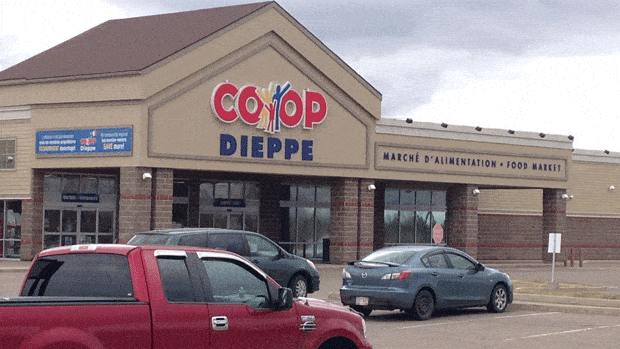Governance lessons come from many places. Sports. Family. Canoeing. The analogies are endless. But real-life business failures offer the best sources.
Because failure — especially for co-ops — is often directly related to governance issues. Failure in governance means those entrusted with overseeing the business make a series of poor decisions. And, because they’re a co-op, everyone can see it happen — often in real-time.
Of course, business failures happen every day. It’s normal. But, when big co-ops fail, they often generate media attention — especially if they’ve been around a long time or have many members. This means lots of analysis and insight is available.
Thankfully, we can learn from these failures so that other co-ops — big and small — can avoid similar fates.
Governance Lessons from an Unlikely Source
Co-op Atlantic is an example of a large co-operative that made fatal mistakes. Our friends at the Canadian Centre for the Study of Co-operatives studied the case.
In a paper called “Governance as a Determinant of Success or Failure,” scholars Brett Fairbairn, Murray Fulton, and Dionne Pohler use the Co-op Atlantic case to illustrate the importance of good governance for co-operatives.
Governance is a fancy word for how groups make decisions, whether corporate executives, politicians, or co-op board members. Of course, how these leadership groups make decisions influences the way a business, organization, or government is run.
“In the long term,” Fairbairn, Fulton, and Pohler claim, “the most important determinant of a co-operative’s success — or its failure — comes down to governance.”
So what was Co-op Atlantic, and where did it go wrong? And, more importantly, what lessons can we learn from their mistakes? Let’s take a look.
What was Co-op Atlantic?
Co-op Atlantic formed in the 1920s to provide affordable goods to consumers in Canada’s eastern provinces. The co-op lasted almost 100 years and grew to be a federation of 28 locally-owned retail organizations. In 2014, it generated over $600 million in sales. As a central supplier, the federation provided wholesale groceries, fuel, and farm inputs to their co-operative network.
By 2015, the federation faced aggressive competition from Sobeys and Loblaws, mounting debt, and the negative results of bad business decisions. These challenges, and how leadership responded to them, eventually led to the co-op’s demise.
Here are five essential lessons we can learn from Co-op Atlantic.
1. Engage membership
Co-ops need the people involved in their governance to work together. Members, boards, managers, and staff all need to rely on each other. And successful co-ops create ways for these actors to work together effectively.
Unfortunately, Co-op Atlantic did not.
Co-op Atlantic attempted to turn financially struggling stores around by amalgamating them. Called the Consumers’ Community Co-operative (CCC), this new, centrally-managed organization was supposed to help manage the co-ops’ debt. But, to attract a broader market, CCC stores focused on low prices at the expense of full service and patronage refunds.
The strategy didn’t work. Although giving Co-op Atlantic better control over local stores was more efficient, it also alienated local stores and their members. (And alienating your core market is a bad idea for a business!) Plus, despite the strength of their local footprint, these co-ops did not have the buying power of global retailers to absorb the low margins of discount retail.
What can we learn from this?
Had Co-op Atlantic facilitated a network-wide culture of trust and collaboration among member retails and individual consumers, they might have received financial support and solutions from members. This sort of member engagement is critical to the survival of co-ops, especially in a time of crisis. Instead, Co-op Atlantic centralized decision-making, reduced loyalty, and consolidated services, driving members to its competitors, which, of course, compounded their financial troubles.
2. Focus on purpose and vision
Co-ops are often created by people who work through challenges together. To do this they share a common goal and understand how it will unfold. Co-op Atlantic failed miserably on this front.
Co-op Atlantic’s member stores tried to attract markets based on low prices. The strategy led to intense pressure from larger competitors, such as Sobeys and Loblaws, who offered price matching at better locations. Local co-ops struggled to compete and lost members’ loyalty.
As the situation became dire, Co-op Atlantic attempted to branch out in a number of ways — none of which helped to stabilize the business. Leadership expanded the business into meat processing, seniors housing, and more. But their inability to stick with a single strategy or cultivate buy-in at the local level left the network without a common vision.
What can we learn from this?
Creating the right view of the future doesn’t require a crystal ball. What is does take is a diversity of perspectives focused on a single purpose. Making sure you have a mix of board members with different backgrounds and experience offers a better chance of making the right decisions about the direction of the business. And achieving the delicate balance between management and the board helps strategic decisions be more informed and focused on member interests.
3. Make decisions with authority
To be frank, if members don’t see the co-op and its leadership as legitimate, it’s done. Without legitimate decisions, no matter what a board does, member support wains, people ignore policies, and the business starts to break down. When Co-op Atlantic strayed from its purpose and neglected its local consumer members, it lost any legitimacy it might have had.
Loss of legitimacy doesn’t happen suddenly because of one decision. For Co-op Atlantic, it happened over time, as it consolidated locally-owned co-ops and cut costs at the expense of member engagement. The co-op eliminated local member-relations staff, cut member education programs, and even removed suggestion boxes from local stores. It’s pretty obvious they didn’t value — or even want — input from members.
Once it got rid of the things that made it a co-op, it was much easier for Co-op Atlantic’s members to go to one of its competitors instead. Eventually, the co-op itself would make the same trek but in the form of a fire sale.
What can we learn from this?
Listen to members. Co-operatives need a vision that resonates with members to keep them loyal, engaged, and working together. Ask members to help create that vision, and then deliver on the promise. If Co-op Atlantic and its member co-ops had turned to local consumer-members for insight and support, they may have found a strategy that worked.
Instead, Co-op Atlantic lost legitimacy trying to be something it wasn’t. It centralized decision-making, cut member engagement, and adopted practices that were unfamiliar to co-op members. In the words of Tom Webb, “if a co-operative copies Walmart, it will become a second-rate Walmart and deeply erode member loyalty.”
He’s right. If decisions are being made with authority, members often support a co-op when times are hard and are willing to help overcome challenges. But to help, they need to know how they can meaningfully participate and that they’ll be taken seriously. Co-op Atlantic did neither but should have followed Maple Creek Co-op’s lead instead.
With depleted reserves due to expanding operations shortly before a recession in the 1980s, Maple Creek co-op found itself in financial trouble. The co-op went to its members, raised critical capital for short term cash flow, and saved the business. They maintained legitimacy thanks to solid member engagement and transparency. The result was engagement and the survival of the business. Co-op Atlantic could have learned from them.
4. Your biggest weakness is your greatest strength
One of Co-op Atlantic’s challenges was its managers’ contempt for the co-op’s structure. They didn’t trust the co-op model, and Co-op Atlantic didn’t train managers on how co-ops work or outline the model’s advantages. This lack of understanding caused division and conflict — members of the local co-ops felt managers ignored their concerns, and managers often disagreed with their boards.
Local managers also often viewed their boards as something to control and members as little more than shoppers. According to Tom Webb, managers didn’t even understand the concept of a membership share. When new members asked why they needed to pay a fee to shop at the store, managers’ typical response was, “It doesn’t make much sense to me either—you would have to ask the big guys in Moncton.”
The perceived lack of agility in co-ops is often a side effect of leadership not understanding the model, and not a reflection of the model itself. Educating leadership on the advantages of the model and the value in serving the interests of members is critical to the health of a co-operative.
What can we learn from this?
Failing to hire and train managers willing to understand the co-op model and embrace its advantages is a missed opportunity for co-ops and can erode them from the inside. Co-ops should provide an orientation on co-operatives when bringing on managers. Having decision-makers that understand why the business is structured the way it is can help the business stay focused on its purpose.
5. Leadership needs to understand good governance
Managing how people work together, aligning everyone behind a purpose and vision, and doing so with authority is complex. Co-op Atlantic’s board never required training and had only a cursory understanding of the business. As a result, the board was ill-equipped to challenge management and represent the interests of members.
When a co-op’s board and management understand co-operatives and good governance, they’ll be better positioned to make informed decisions that use the co-op’s structure as an advantage.
What can we learn from this?
Educate your board of directors on the principles of good governance. To start, offer them the free online course, Good Governance Matters. This course explores real-life case studies of co-operative governance using a model developed by scholars at the Canadian Centre for the Study of Co-operatives at the University of Saskatchewan.
Learn more about the course HERE.

 Written by
Written by 


